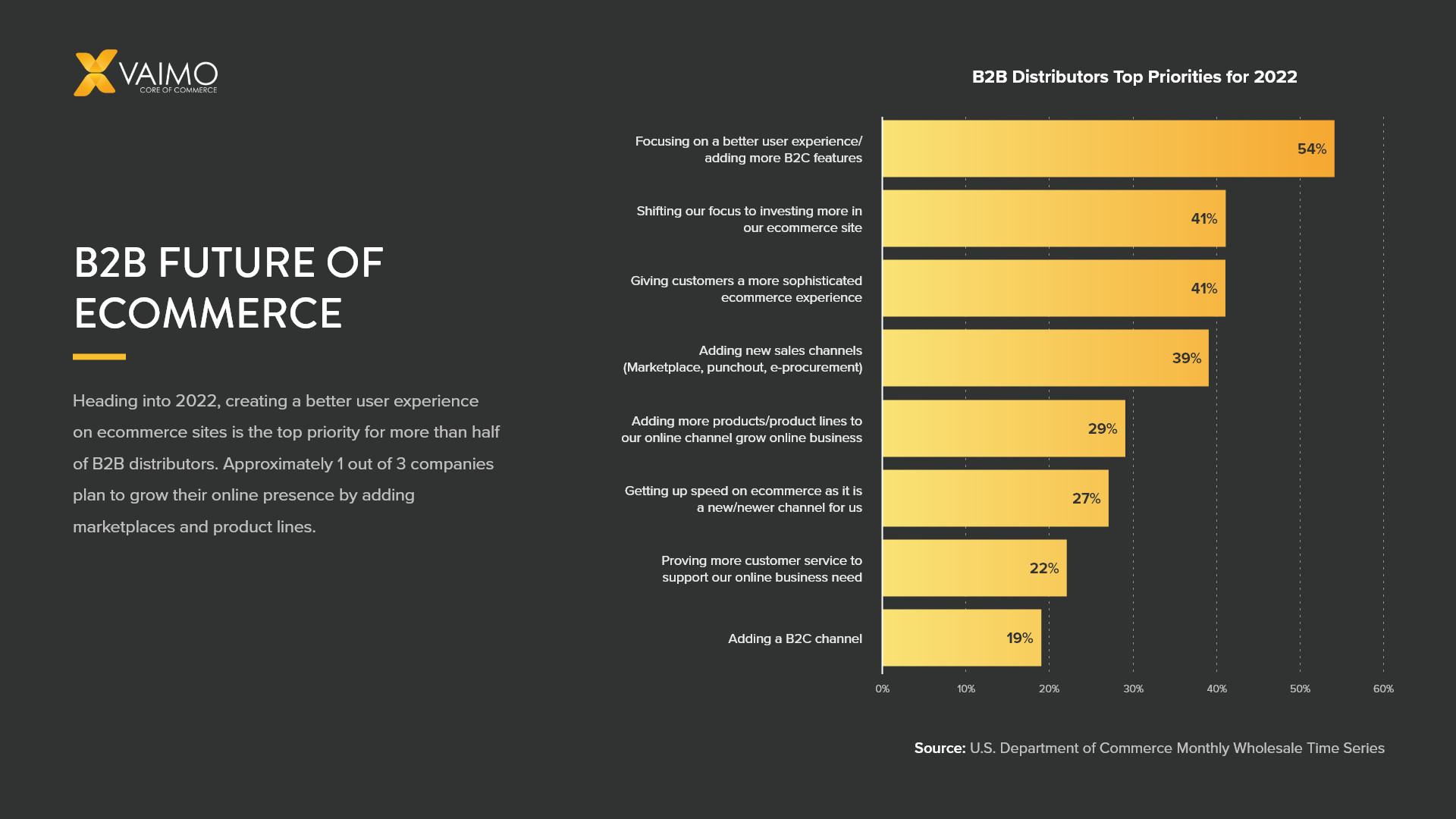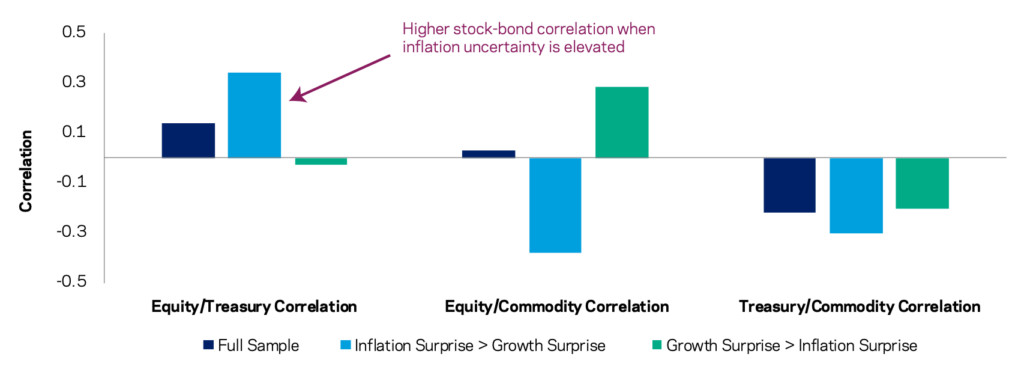B2B Ecommerce Revolution: How Businesses Are Transforming Their Growth Trajectory in 2024
As B2B ecommerce evolves amid rising competition, B2B players are standing out with new strategies. A new report from Digital Commerce 360, B2B Technology Roadmap & Disruptors in the Industry, shows how B2B companies of all types are discovering new opportunities and the right technology and services to grow them. Sometimes, the opportunities arrive unexpectedly, as when Ashley Ching realized on family trips that the vacation rental industry needed a better way to manage supplies and quality standards across a widespread network of independently owned businesses and property management companies. Enter Inhaven, Ching’s B2B ecommerce site for vacation rental supplies and services. As the DC360 report notes in a story on Inhaven, Ching is disrupting her industry with a mix of ecommerce technology and strategy designed to help vacation rental businesses and their management services providers operate more efficiently — while also earning Inhaven itself industry recognition.
The Rise of Digital-First B2B
The B2B e-commerce landscape is experiencing a significant shift powered by changing consumer needs and preferences. The two main drivers for change include the adoption of a digital-first approach by B2B buyers for research, product discovery, and procurement, and the rise of remote work and virtual collaboration, facilitating easier online connections with suppliers and vendors. Features like online catalogs and product configurators cater to the growing self-service preferences of B2B buyers. Several B2B buyers expect the convenience and personalization of B2C ecommerce, including easy-to-navigate websites, personalized product recommendations, and fast checkout processes. This necessitates optimization for mobile devices and 24/7 availability. This buyer shift has arrived, and e-commerce stores must change their business. B2B ecommerce development directly impacts the business’ trajectory and can make or break it in this uber-competitive market.
Key Benefits of B2B Ecommerce Development
The main benefits of B2B ecommerce development for business growth are numerous. An online presence expands market potential, leading to higher revenue. E-commerce platforms open doors to new industries and customer segments previously inaccessible. Online marketplaces and search engine optimization (SEO) improve brand visibility and attract new customers. Furthermore, modern B2B ecommerce platforms automate manual tasks like order processing, invoicing, and shipping, reducing human error and improving accuracy. This faster order fulfillment translates to better customer experiences and increased customer loyalty. Finally, data analytics provide valuable insights into customer behavior, preferences, and purchasing patterns, allowing for better planning and resource allocation. Personalized marketing efforts further enhance customer engagement and satisfaction.
Essential Features of Robust B2B Ecommerce Platforms
All this talk about developing a B2B e-commerce platform requires understanding the main features that make or break the platform. Advanced search and filtering capabilities are crucial for product discovery in complex catalogs. Personalized search, using AI and machine learning, provides customized product recommendations. Bulk discounts and tiered pricing structures encourage larger orders, while custom pricing allows for flexible negotiations. Self-service portals empower buyers to manage their accounts independently, reducing the need for customer support interactions. Tracking order status, inventory levels, and pricing information enhances the buyer experience. Successful businesses combine a great product with world-class customer service and robust business systems to ensure the machine runs smoothly. B2B e-commerce relies on these systems for the basics and the most complex tasks because a solid foundation supports the rest of the business.
Optimizing Operational Efficiency and Revenue Through B2B Ecommerce
Here is how we use B2B e-commerce to improve operational efficiency and revenue: Automated order processing, invoicing, and shipping reduce manual effort, minimize errors, and accelerate order fulfillment. Real-time inventory tracking and automated replenishment optimize stock levels. Customer Support Automation using chatbots and AI-powered tools handles routine customer inquiries, freeing customer support teams to focus on more pressing matters. Well-designed B2B platforms serve as digital sales channels, reducing the need for a large sales force. Remote Sales Teams use the platform to connect with customers, share product information, and close deals, minimizing travel costs. A B2B platform’s scalable infrastructure accommodates increasing customer demand and product offerings. A flexible platform architecture enables agile development and deployment of new features and functionalities. In 2024, B2B eCommerce development will be a crucial driver of business growth. Companies that embrace digital transformation and invest in solutions like BigCommerce development services will streamline their operations and enhance customer engagement and satisfaction. Investing in B2B eCommerce is no longer optional but a strategic imperative. Organizations prioritizing web and app development will gain a competitive edge, increase revenue streams, and foster long-term client relationships. As the digital landscape evolves, those who adapt will thrive.
A Future Defined by Digital Transformation
The report also delves into what it takes to operate as effective B2B customer-obsessed online sellers, as noted by Forrester, and new innovative tools designed to foster B2B commerce, the Itelli.Build SaaS application and the Lumber construction management app. In addition, case studies show what’s behind the ongoing robust ecommerce growth at leading online B2B players Wesco and Watsco. These perennial online leaders are worth watching. In today’s fast-paced environment, leveraging eCommerce isn’t just an option; it’s necessary to achieve lasting success. Companies investing in digital solutions can streamline operations, expand their reach, and build stronger customer connections. A well-designed eCommerce platform allows businesses to respond quickly to market demands and better serve their clients. The competitive landscape is evolving rapidly, and those prioritizing B2B eCommerce will gain a significant edge. By embracing these digital tools, businesses can unlock new revenue opportunities and enhance customer satisfaction. As we look to 2024, B2B eCommerce development is more than just a trend—it’s essential for driving business growth.

















